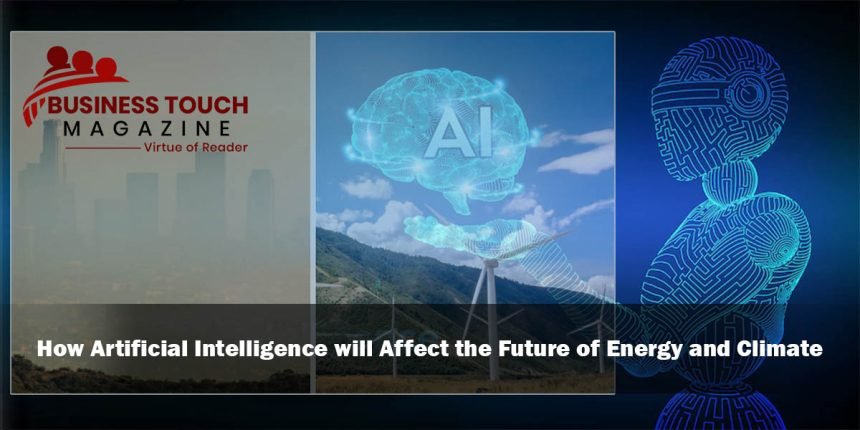AI HELPS MAKE MARKETS MORE EFFICIENT AND EASIER FOR ANALYSTS AND MARKET PARTICIPANTS TO UNDERSTAND HIGHLY COMPLEX PHENOMENA—FROM THE BEHAVIOR OF ELECTRICAL POWER GRIDS TO CLIMATE CHANGE.
But AI itself won’t assure that outcome without clear policy incentives. Ironically, extremely smart energy markets lubricated by AI may make it easier to design good policy incentives while also making it easier for consumers to make choices about which energy services and products to buy that avoid the need to cut emissions.
Even a big effort to control emissions will leave a lot of climate change—meaning that, in the future, much of “climate policy” will be focused on adapting to climate impacts and implementing quick responses in case of climate emergencies. Extremely intelligent systems for adapting to climate change impacts may make the cost of that adaptation more transparent and thus politically difficult to muster.
AI IMPACTS ON ENERGY DEMAND AND MARKETS
One of the great promises of adding AI to energy markets lies with linking what customers want e.g., light and heat with the exact range of options and market conditions for supplying those energy services. Machine learning is ideally suited for making fine-grained determinations of what customers want and then adjusting energy purchasing decisions accordingly. In theory, they could make a number of services that are already offered in today’s markets more powerful, such as:
- Purchasing green energy credits.
Today, customers typically either “go green” or don’t. What they pay for green is a decision made rarely. AI systems could better embed information about what customers are willing to pay for green energy and also offer different shades of green. Today, the green debate focuses on renewable power almost exclusively. In the future, it could include other offers—for example, output from new nuclear reactors that are emission-free.
- Adjusting power purchasing decisions.
As power grids shift to play a much larger role for variable renewable generators, the price of power will become more variable, creating a greater social value from real-time adjustments in power purchasing. Power prices may reliably become negative mid-day and then spike as the sun sets but demand for air conditioning and lighting rises in the late afternoon. AI can allow even small consumers to automatically adjust their power consumption in real-time with prevailing prices—something that ordinary people won’t do unless they like sitting at home staring at real-time data from power markets.
- Making electric supplies more reliable and bespoke to consumer needs.
AI schemes could integrate data from hazards and then adjust grid operations accordingly making the grid safer, more efficient, and more reliable. Already, a few utilities have installed self-healing grid systems, which are automated surveillance, and switching equipment that can identify faults on a grid, isolate them, and restore power automatically. Similarly, many customers now demand levels of reliability higher than what the grid can offer and they purchase costly power conditioning, generation, and storage technologies. AI can help make the purchase and operation of those systems much more efficient.
ARTIFICIAL INTELLIGENCE TECHNOLOGIES HAVE A CLIMATE COST
The AI-climate change link is understudied, not least because the largest companies working in this space are neither transparent nor meaningfully committed to understanding it. The “race” for dominance in AI is far from fair: Not only do a few developed economies possess certain material advantages right from the start, they also set the rules. They have an advantage in research and development and possess a skilled workforce, as well as wealth to invest in AI. 5 Remarkable Ways AI, Can Battle Climate Change
- Smart transportation like autonomous and electric vehicles
AI-powered autonomous vehicles (AVs) are driving a transition from high-carbon emission means of transportation to sustainable means of mobility-on-demand. By reducing the greenhouse gases emitted by fossil fuels, urban transportation can be managed efficiently via eco-driving algorithms, traffic optimization, autonomous public transport, etc. Electric vehicles used as a substitute for fossil fuel-run automobiles will deliver real results in curbing carbon emissions and tackling global warming.
- Energy-efficient energy grids
AI boosts the ability to predict the supply and demand for renewables using distributed energy-efficient power grids. By improving the efficiency of load management, energy storage mechanisms, integration of renewable sources of energy, and dynamic energy trade, the distribution, and management of resources become more streamlined. Advancement in the field of renewables is a direct result of AI-powered equipment to identify and employ climate-conscious strategies.
- Smart food systems and agricultural activity
AI-driven agriculture utilizes automated data collection mechanisms, corrective actions, predictive analysis, and core decision-making functions with robotics. This enables advancements in assessing soil fertility, livestock nutrition, crop disease control, and improves the efficiency of resources used in the agricultural industry. The smart use of land, lowered use of water and fertilizers will help preserve natural ecosystems while yielding a good harvest year-round. AI also helps identify genetic makeups that help crops withstand pests and extreme climate conditions.
- Weather forecasting and analysis of climate trends
Climate informatics is a field powered by AI that uses technology to improve weather forecasting and our general understanding of the impacts of climate change. Deep learning networks enable energy-efficient computing resources to run AI algorithms and climate data faster and in real-time. This helps us understand the nature of climate trends and calculations better. By lowering research costs to improve scientific outcomes by accelerating new discoveries, AI will help predict extreme weather conditions using advanced data modeling approaches.
- Smart interconnected cities designed with AI
Artificial Intelligence has the amazing ability to simulate and generate zoning laws, building plans, urban infrastructure, sewage control, floodplains, and more. Merged with virtual reality (VR) and augmented reality (AR), people can construct the most efficient cities that are interconnected with technology. Real-time data about energy consumption, water usage, traffic data, carbon emissions, social demographics, and weather conditions can be studied to improve the quality of life in cities. AI in Environmental Intelligence holds the key to sustainable urban planning and interconnected living.
To Conclude
There are two points to focus on. First, AI has the potential to make energy markets a lot more powerful by unlocking new supplies, reducing transaction costs, and making it easier for users to specify what they want to buy in the market. Efficient markets are great, but they also mean that market failures can become more rampant. Second, as the world grapples with climate impacts and adaptation, it will probably discover that the line between “adaptation policy” and “good development” gets blurry. Some of the most important adaptation policies are also among the most important development policies.




